They really remind me of Pheidole.
Except that they grow very slowly and only have small colonies. Pheidole intimidate me.
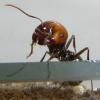
They really remind me of Pheidole.
Latest update!!!!
(Sorry, not posting pictures, I do not want to stress these girls out any more than necessary)
I had to get up during the night to go to the toilet, and took the opportunity to shine a red light into the nest. This colony is really active during the night! Lots of movement and foraging and activity.
They are basically like any other ant colony at night, and watching them with a red light is totally fine.
Just using normal light will cause them to freeze and cause a total standstill.
So yeah, the people saying that this species is boring and does not have a lot of activity- they were looking at the wrong time of day, probably using normal light.
In addition, concerning the condensation problem:
My measures which I described above WORKED!
The condensation is now minimal.
Also, the colony has now dispersed in the nest-
The queen and the larvae are sitting on top of the water tower (higher humidity) while the majors are watching the seed stash and the nest entrance (lower humidity).
So there is now climatic gradient in the nest, which is what we want to have.
The ants can now decide where to organize themselves.
This is also good for the seed stash- I was worried that the seed might sprout. But with lower humidity, this is less likely.
I am so happy this worked out so well. I am still a beginner, and finding out about this climate engineering is really rewarding.
So far, the ants leave the nestmate alone.
I know that Mack from THA has posted the other day that some species will chew through the nest mates (I have even added a question to the THA Facebook group about the topic).
I will just have to have an eye on this.
My Messor colony would probably have chewed through there already, but these ants have not shown any interest in the nestmate yet.
Maybe they will when the colony grows bigger.
Edited by Ernteameise, April 21 2024 - 1:03 AM.
Right, I dared taking pictures- no flash and only red light and the red cover stayed on.
As you can see, the condensation is mostly gone.
Here you see the seed stash near the nest entrance, you also see the guards at the entrance of the nest (they just sit there and keep an eye on things) and the major who is guarding the seed stash.
Everyone seems to have a clear mission.
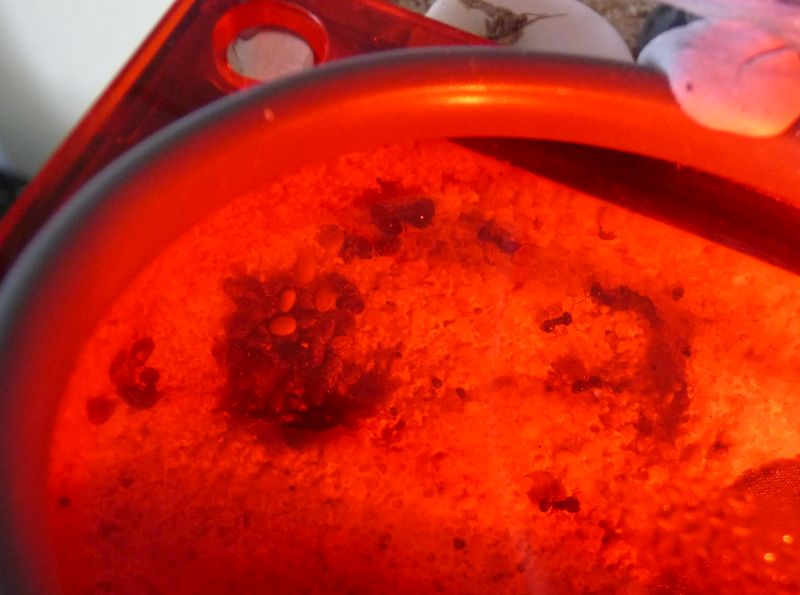
The rest of the colony moved on top of the water tower.
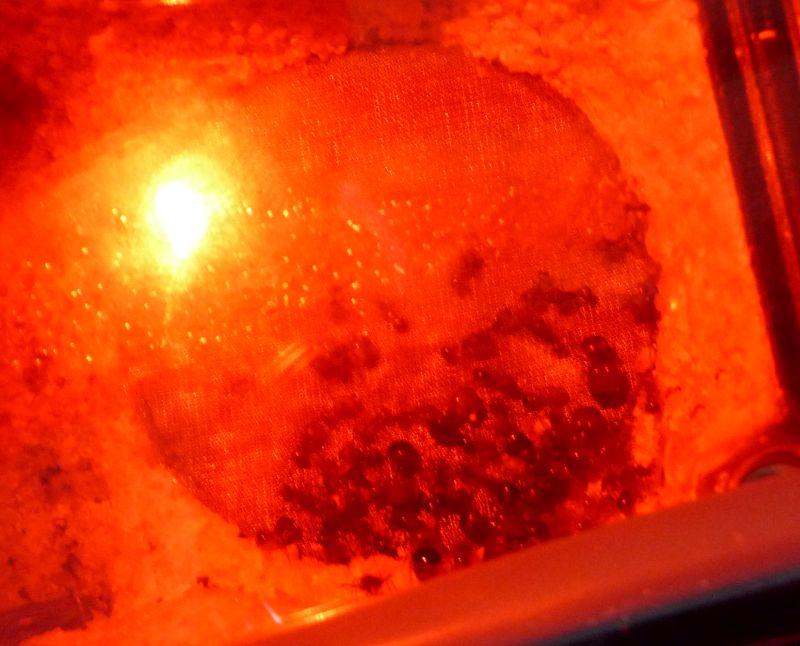
I also provided them with fresh food- I am also curious if they will take quinoa seed, so I offered some together with their chia and fig seed.
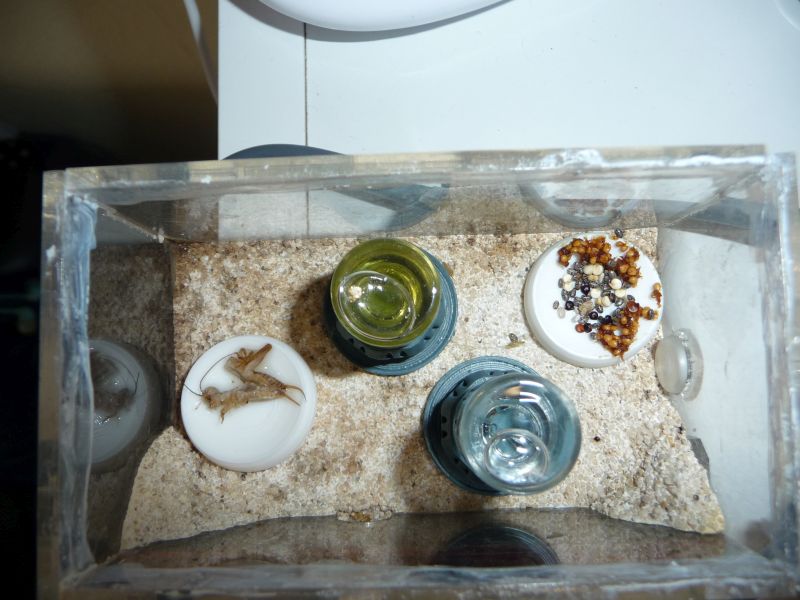
Edited by Ernteameise, April 21 2024 - 4:03 AM.
Right.
Just came home from a concert with my aunt and uncle at midnight and looked again into the nest of these girls (using a red light).
Now what is this????
They have moved all the seed on top of the water tower.
Do they want to soften them up? Feed to the larvae? Planting a garden?
I am confused.
Oh well, if the seed sprout, at least this colony will be easy to deal with when I have to clean up after them.
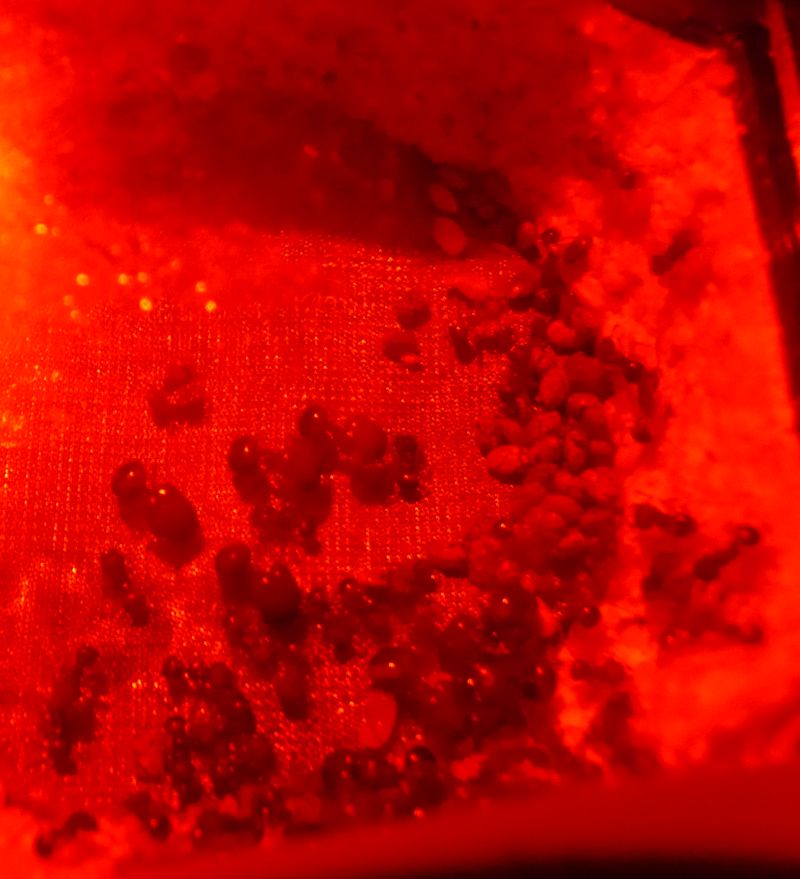
I am curious if this still will look like this tomorrow morning.
Edited by Ernteameise, April 21 2024 - 2:34 PM.
And here you can see the NORMAL WORKERS masticating a quinoa seed. Yes, they have accepted the quinoa seed.
I am surprised that the normal workers do this, and not the majors.
Three of them were chewing it up and then breaking of small bits, and they handed the small bits to the majors which handed them to the larvae.
Well, I did read in the behaviour papers on this genus that the majors also do the nursing duties for the larvae, but this really surprised and excited me.
Should it not be the other way around?
Yeah, past my bedtime, should probably go to bed now instead of watching ant TV.
But it is fascinating to watch them doing their role-playing game.

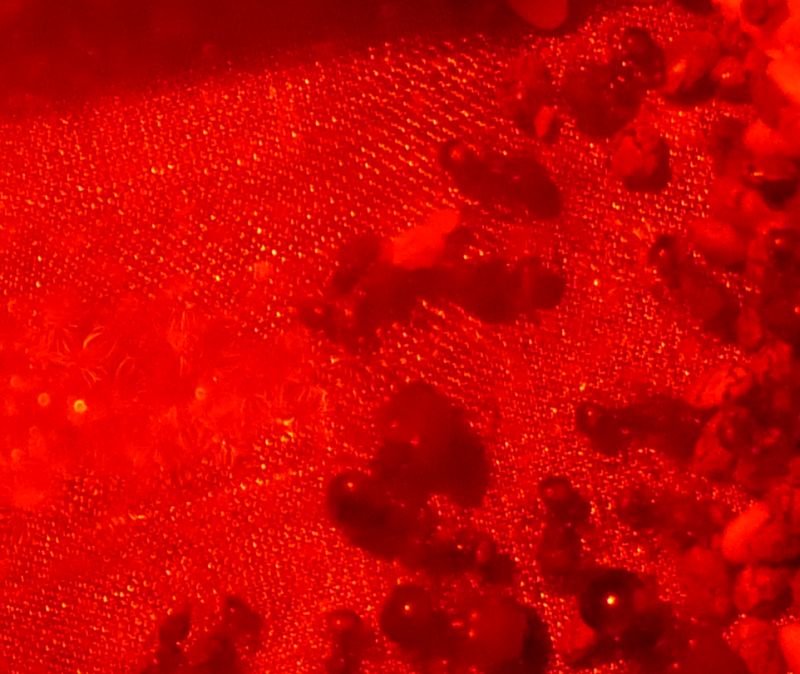
Some more insight into the colony.
I am very happy I discovered that with this red light, and without flash!, I can watch this colony going about their business and not feeling disturbed. And freeze up.
Yes, the picture quality is a bit low, but I still can see and watch them very well.
The colony and their seed stash, you again can see to normal workers chewing on a seed:

The queen sits on top of the brood:
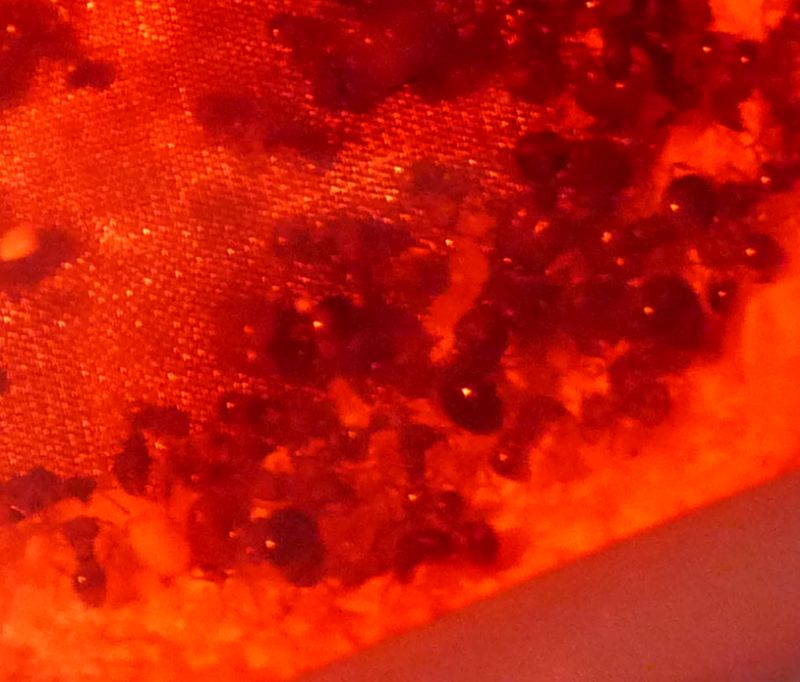
Working on these seed:
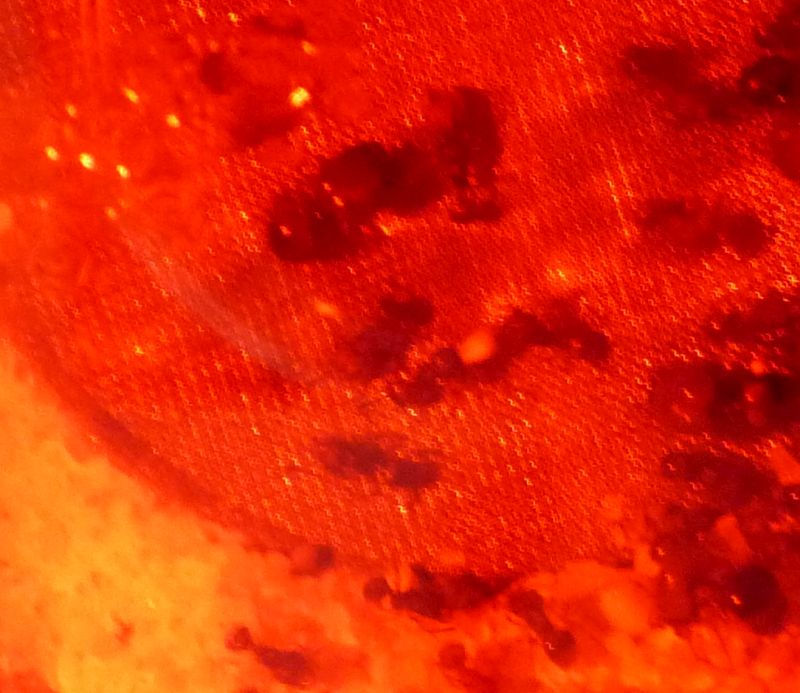
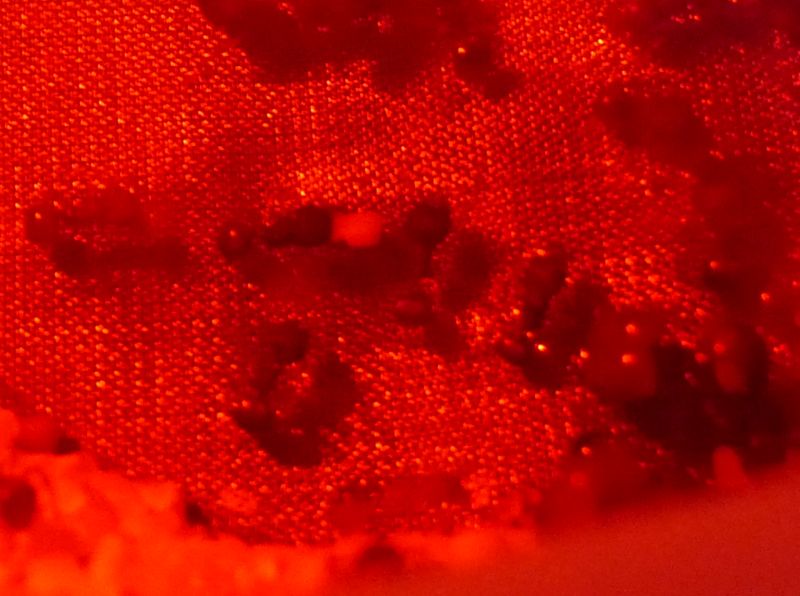
And here you see some majors and some normal workers with processed food- it will be chewed up seed and chewed up cricket, the normal workers hand it to the majors:
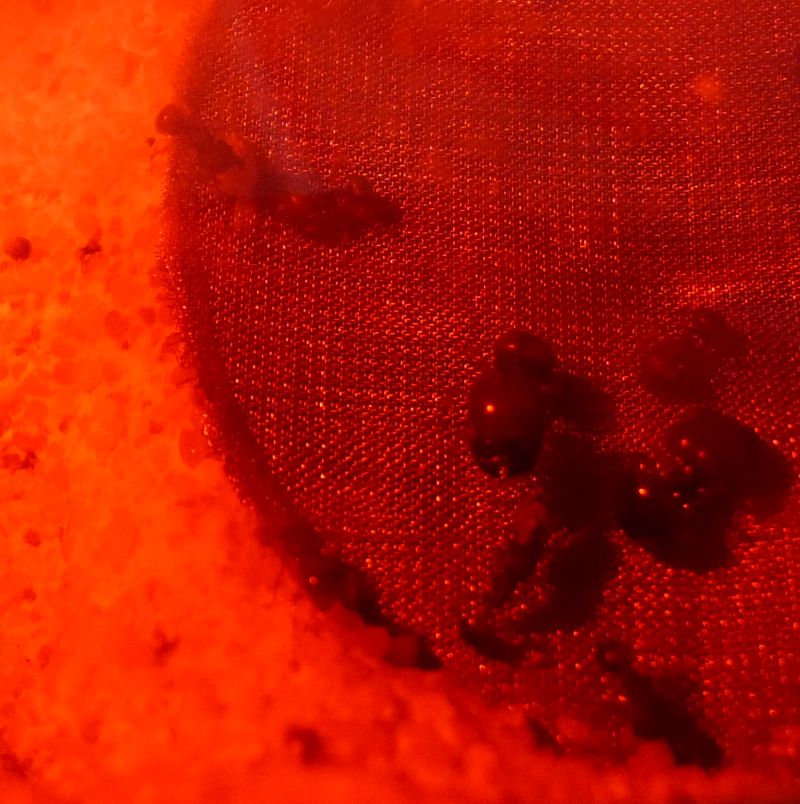
So another keeper of these ants on Facebook advised me to only feed crushed seed, since they always seem to store their seed in the "wet area".
I actually think I know what they are doing- they are softening up the seed!
Sprouting seed are easier to crack and handle.
Here you can see a major handling a sprouted seed, holding it by the tip of the sprout:
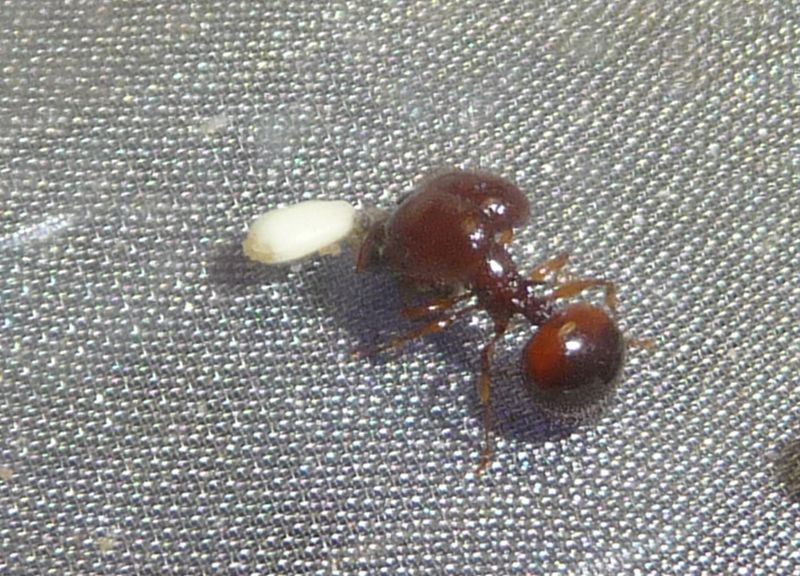
Coming from the advice of the keeper on Facebook, I opened up the nest and cleaned up the mess of stored seed in there.
And yes, most of them had already sprouted.
This really prevented a major mess.
I threw them out and offered fresh, but pre-cracked seed to the girls (fig, chia and quinoa).
I am extremely happy that these ants are so extremely easy to handle.
I can open up the nest no problem and remove the seed without any hassle.
The ants just freeze, do not move and form a tight defensive ball around their queen and brood.
How awesome is that?
Here is the colony forming a tight defensive ball, some workers grabbing larva and curling up around them.
You can even see a worker curling around the queen defensively.
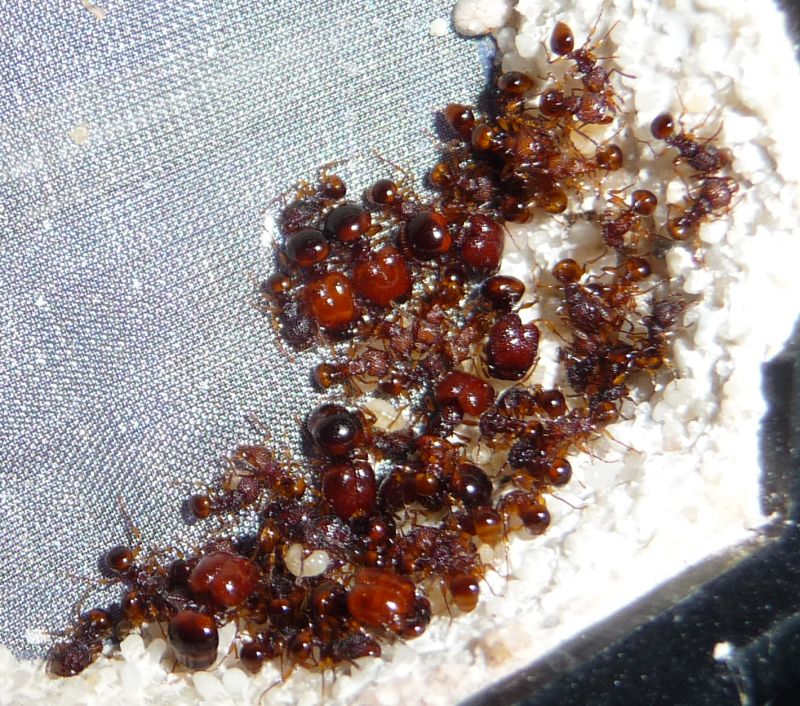
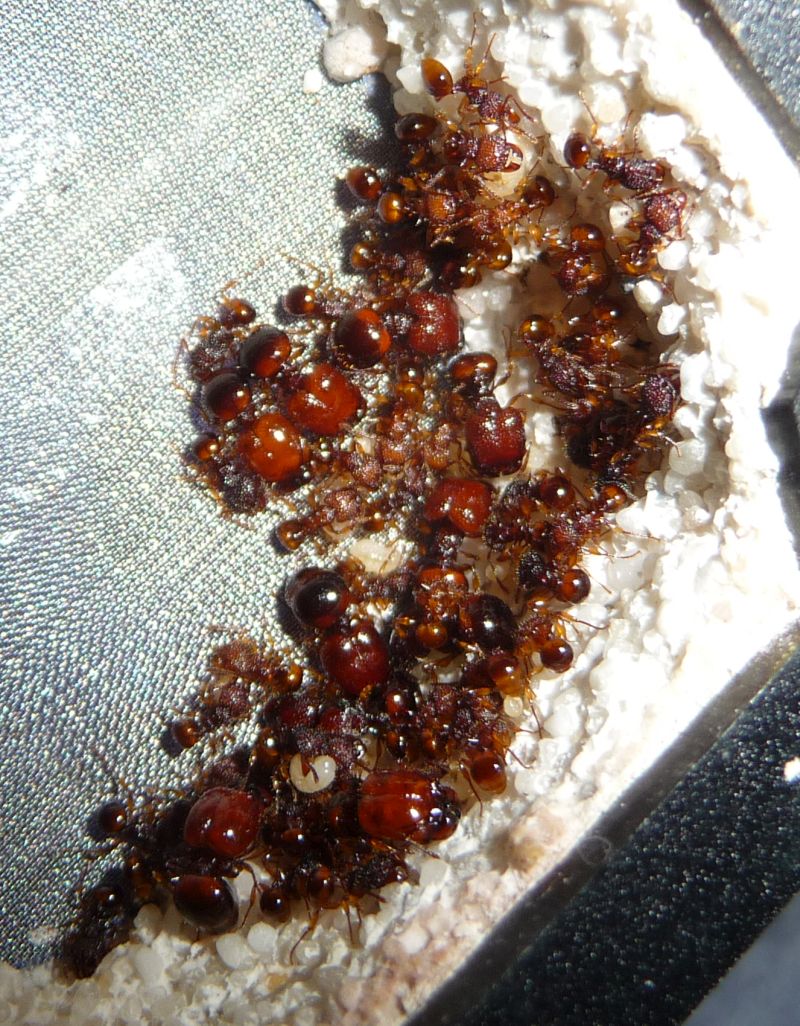
Pre-crushed seed:
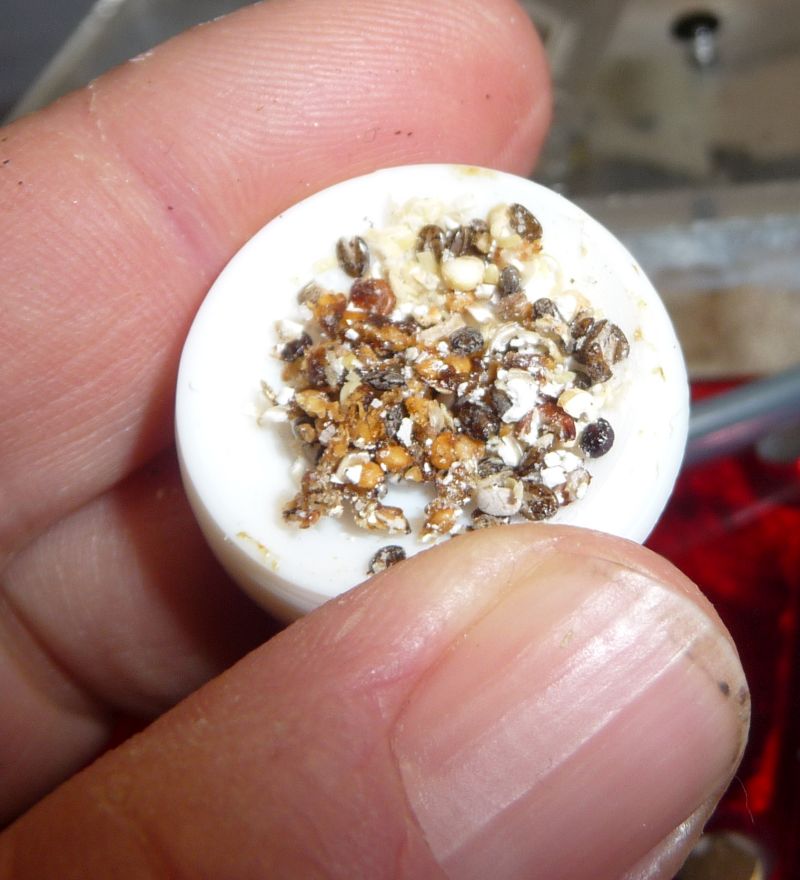
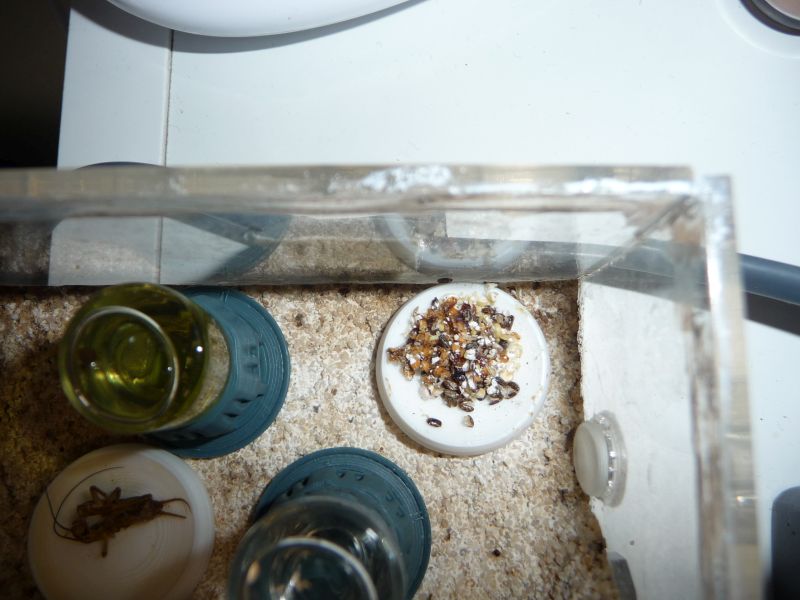
Now I just hope this crushing of the seed solves the problem.
I hope that they won't get a mold problem now.
Now I understand why this species is not a beginner ant and more for more experienced and advanced keepers.
So many things you have to watch out for.
But they sure are very cute.
Edited by Ernteameise, April 22 2024 - 10:07 AM.
They are so friend shaped. I want them
They really remind me of Pheidole.
Except that they grow very slowly and only have small colonies. Pheidole intimidate me.
In that case I need to get myself some Acanthomyrmex. (not that I can in the USA.)
Ants are small creatures... but together... they can rule the world.
They really remind me of Pheidole.
Except that they grow very slowly and only have small colonies. Pheidole intimidate me.
In that case I need to get myself some Acanthomyrmex. (not that I can in the USA.)
I know that is a bummer in the US and the strict rules about trading of ants.
On the other hand, you could have what we have, which is totally uncontrolled trade and on online trading sites they are blatantly selling horrible invasive species. This upsets me. Not everyone is sensible and knows how to keep these species. And we already have the biggest supercolony of the planet in Southern Europe- the Argentine ant colony that spans several thousand kilometres all along the mediterranian coast.
But the European law makers are catching on and I think the days of uncontrolled ant trade are coming to an end.
It is just irresponsible.
I just hope that the trade in little "harmless" species like Acanthomyrmex stays legal.
Wow amazing and cute colony, especially the majors and queen. Very interesting behaviors. I would love to be able to remove my mini hearth glass without ants running around to clean the glass, alas.
Some workers and one major masticating a seed
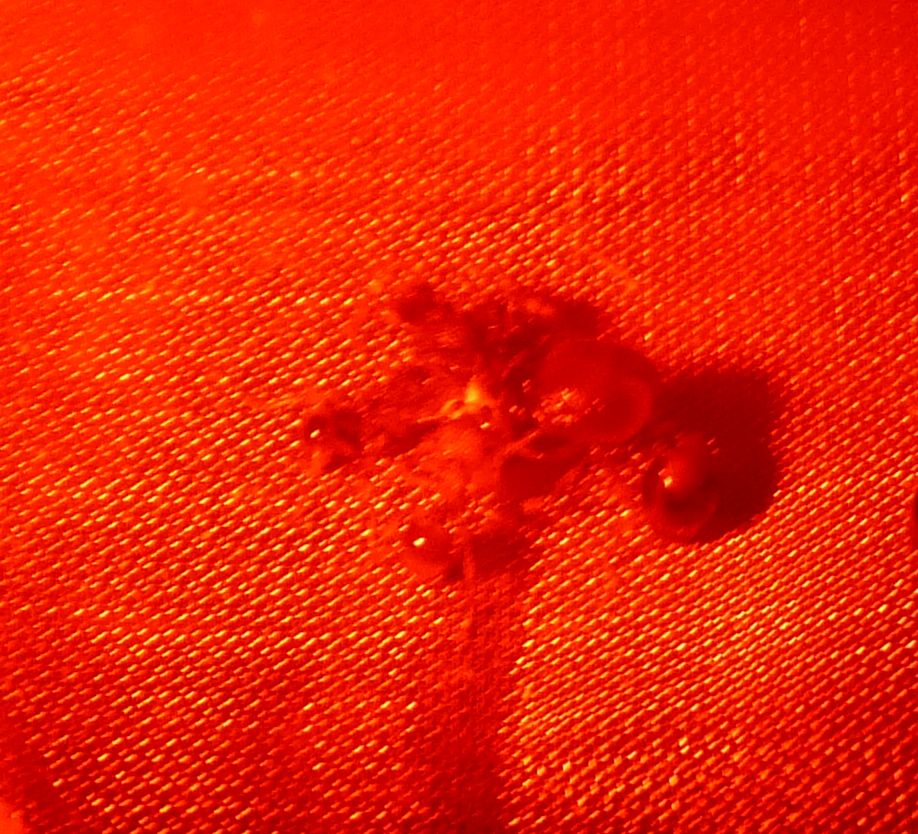
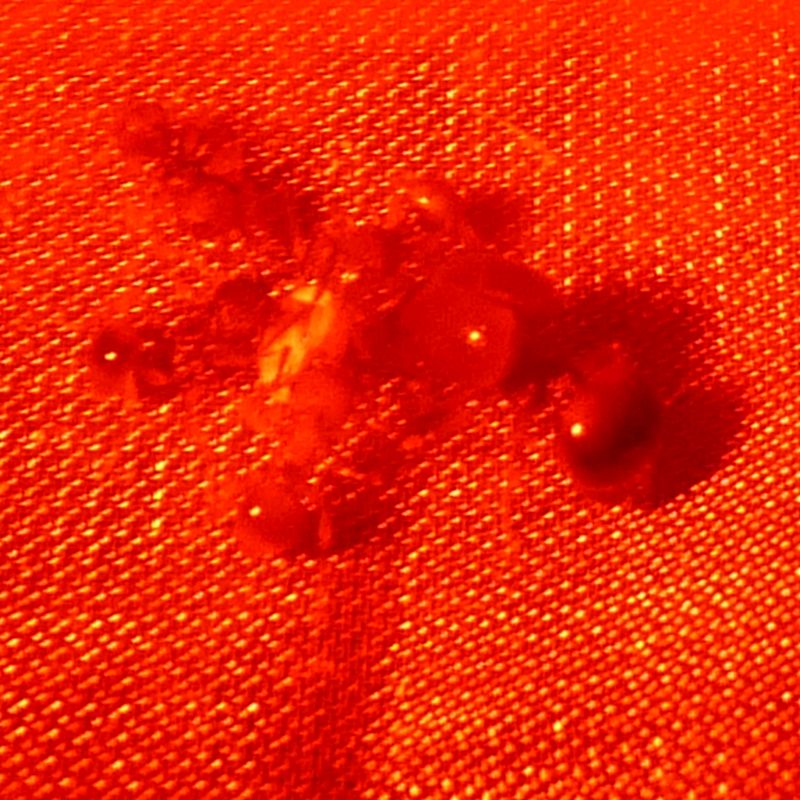
They got a cricket today and that proved to be very popular.
The foragers were all over it right after I put it in:
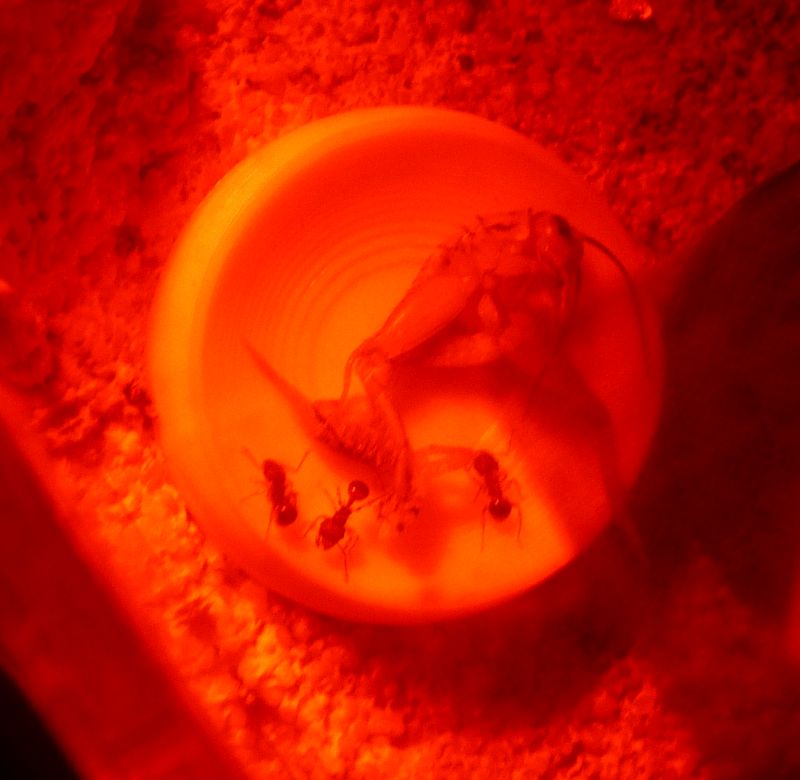
And they carried it off into the nest
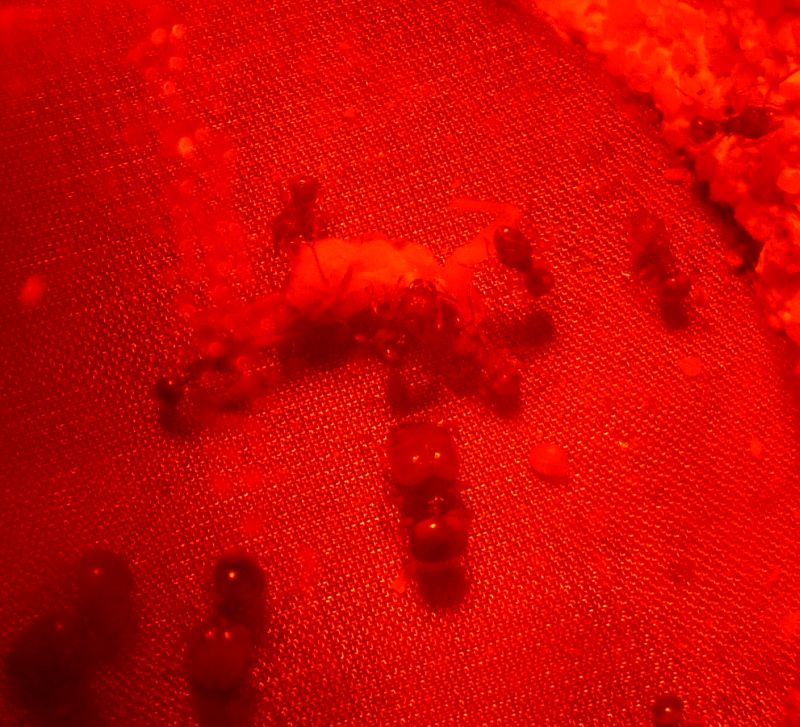
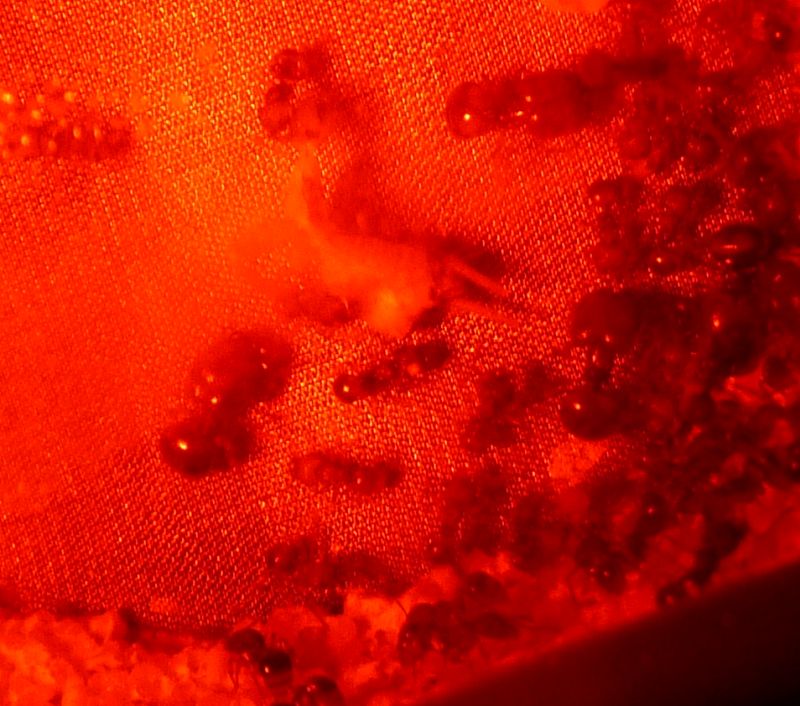
OMG; how exciting! They have their first egg patch that I could see since they arrived here! It is held by one of the workers.
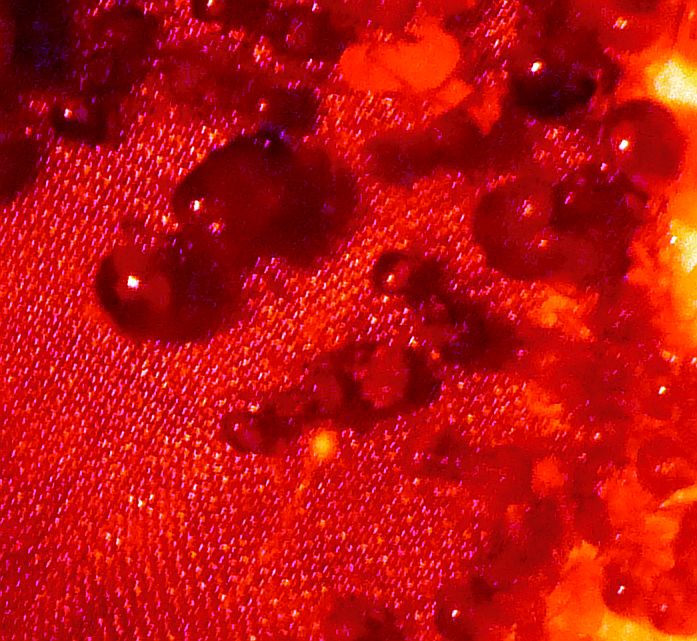
So the ready-to-ship mini hearths arrived here save and sound.
Very well packaged as usual.
What I also love is that Mack always packs a little freebee like a feeding dish for the colony.
The bifurcated mini-hearth will be an extension to this Acanthomyrmex colony when they have grown over this year. I do not expect them growing too much, since in nature, they form colonies of about 50- 200 workers. We will see how this will go.
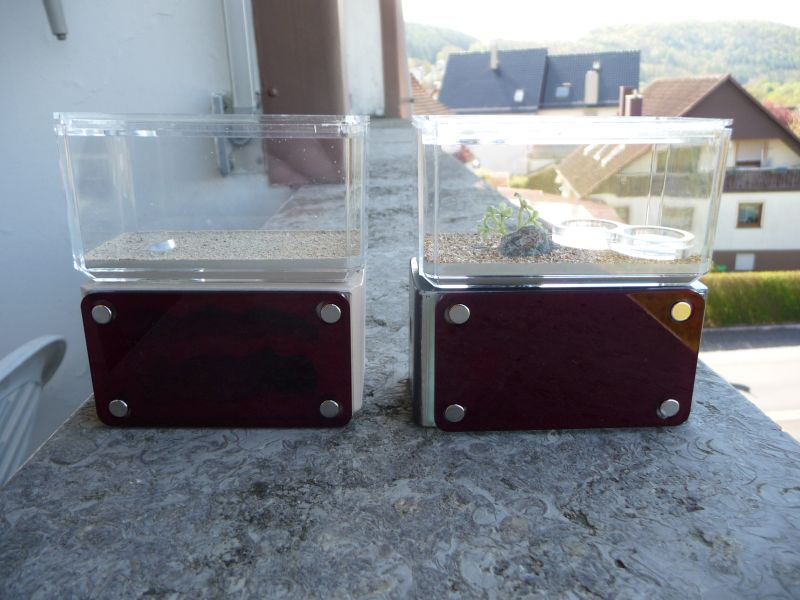
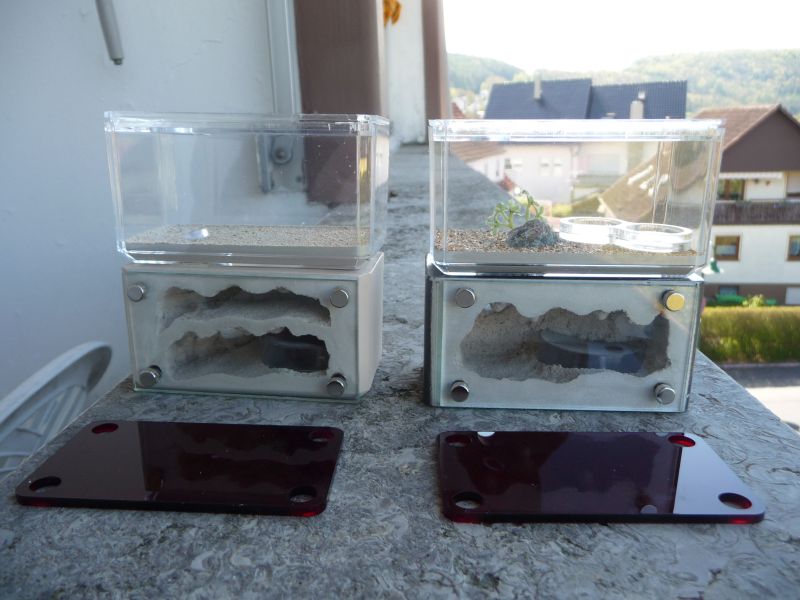
That egg pile is well looked after
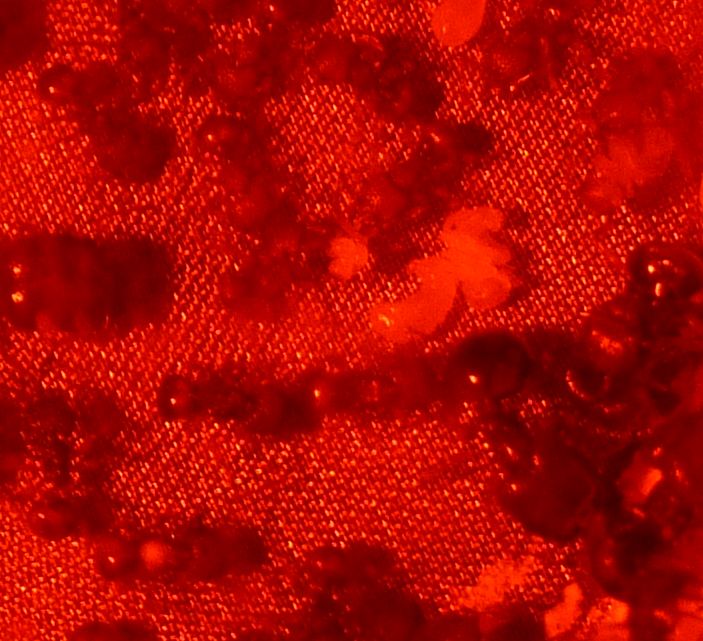
I know that some people have observed that Acanthomyrmex stop collecting and eating seed when in captivity and provided with sugar and protein.
However, whenever I look at this colony, there is always someone chewing on some seed.
I do not see that much activity at the nectar feeder.
At least for this colony, seed remains their favorite food, even if they take crickets and the occasional sip of the nectar.
Mack is pretty awesome, great customer service. The bifurcated design was meant to allow Harvester type ants to store seeds in the top section where it's drier. Curious if your colony will do that.
Mack is pretty awesome, great customer service. The bifurcated design was meant to allow Harvester type ants to store seeds in the top section where it's drier. Curious if your colony will do that.
Mack and Tarheel Ants are nothing short of outstanding. Best customer service of any antstore I know, great communication and high quality product.
At the moment they are a bit high maintenance, since they still store food bits in their nest...
since the seed are cracked, they do not sprout anymore, but there is mold.
I already removed the mold in the nest a few days ago.
So I am actually happy that they are in a nest that I can access much easier than a mini-hearth and the defense reaction of the colony ("Freeze and form a tight ball!" instead of "Run away!") allows cleaning of an active nest.
I will see if this messy behaviour changes when the colony grows.
I had exactly the same thought with the bifurcated mini-hearth, but from what I see at the moment, they seem to store their food in the wettest corners of the nest.
Another option would be, if this colony grows, to get a THA lair formicarium for them which is twice the size of their current nest.
I can use the bifurcated mini-hearth also for a (potential) future colony of Leptothorax, for example.
We will see. It is certainly interesting to make all these observations since so little has been described in journals online.
Still a very cute colony.
Quite a bit of brood.
And two new piles of eggs.
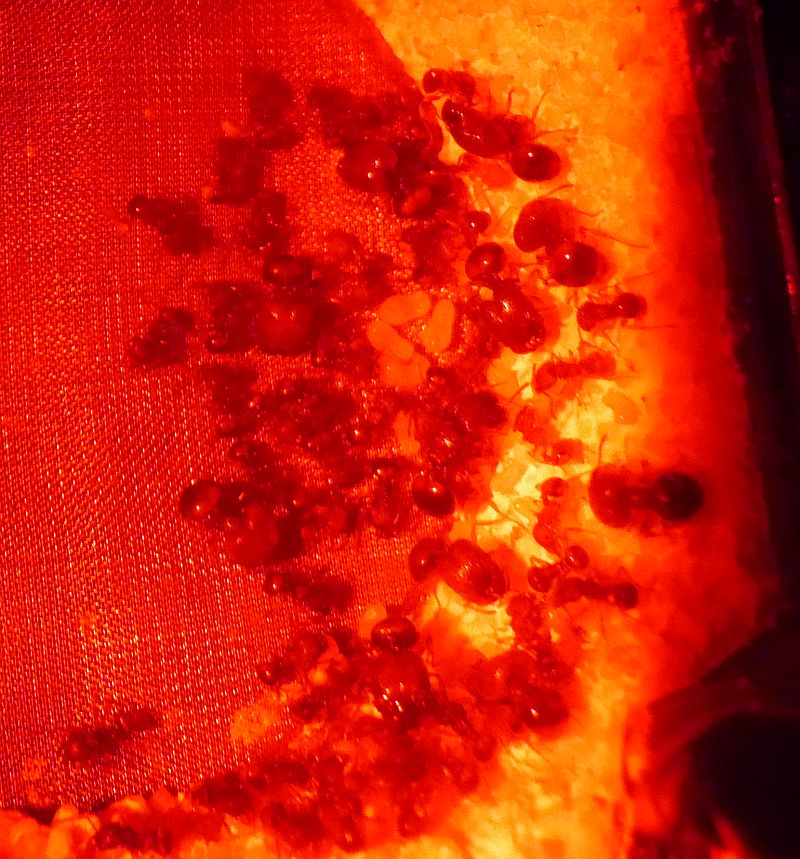
I love Acanthomyrmex so much! I really really wish that I could keep this genus!
Since I cannot, I would ADORE a preserved specimen of each caste. They are so great!Well, if the colony grows larger, remind me again about preserved specimens.
You will however have to walk me through on how to preserve them, since I never took an entomology course and I just do not know.
Also, will I be allowed to send DEAD preserved ants into the US? Per mail? Without permit?
From what I've heard, mailing specimens is fine as long as they're actually dead. Pretty sure no permits needed, though someone please correct me if I'm wrong. 70% isopropyl alcohol should work, but only if they're kept in small vials.
"Float like a butterfly sting like a bee, his eyes can't hit what the eyes can't see."
- Muhammad Ali
Check out my shop and cryptic ant journal! Discord user is bmb1bee if you'd like to chat.
Also check out my YouTube channel: @bmb1bee
0 members, 0 guests, 0 anonymous users